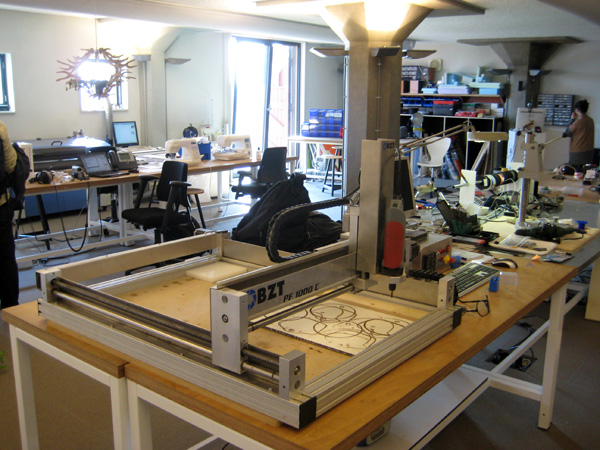Since 2012, there has been a flowering of fablabs on the French territory.
These workshops equipped with numerically controlled machines (and more traditional tools) allow everyone to come and make everyday objects, spare parts, or even to design innovative objects. The term "fablab" refers to the standard model proposed by the Massachusets Institute of Technology (MIT). Fablabs and their various variants (makerspace, open innovation laboratory, collaborative workshop, shared workshop, hackerspace...) are based on a state of mind (a culture of "doing" and learning: everyone can learn) and a set of conventions and values based on cooperation and sharing.
Nearly 400 Fablabs in France
The website and specialized magazine Makery has listed 380 fablabs, hackerspaces, makerspaces and other third places in France that share or are part of this approach.https://datawrapper.dwcdn.net/CrNtq/1/
Île-de-France alone accounts for 24% of them.
Fablabs and hackerspaces: laboratories of social change
Three researchers, Isabelle Berrebi-Hoffmann, Marie-Christine Bureau and Michel Lallement, have just published " Makers. Investigation on the laboratories of social change".According to Isabelle Berrebi-Hoffmann,"we are witnessing the emergence of a global phenomenon that blurs the boundaries between leisure and work, non-market and market, local and global ... Some makers come here because they are in professional transition and want to acquire new skills, others are freelancers who do not want to work alone, others are high school students, students, retirees. It is not easy to establish a typical profile, as the maker movement is in turmoil. It is, according to her, a "real laboratory of social change and leads to a transformation of the modes of production and consumption. By attacking the current system of programmed obsolescence, like the hackerspaces, by inventing networks where know-how circulates freely, the maker movement clearly goes against "vertical" capitalism - that of multinationals and mass consumption. ... These networked communities - and by definition without leaders - have invented a mode of communication that spreads throughout the world. They organize "unconferences" - participatory conferences that take the opposite view of masterful presentations -, hackatons where groups of volunteer developers meet to do collaborative computer programming, or "Five minutes of fame", very short speeches. These new ways of collaborating are spreading even to the corporate world, which sometimes even tries to create its own internal fablabs. It's not only uberization and the platform economy that are influencing the economy today: the maker movement is also leaving its mark... How far? Only time will tell".
France will host the Fablab World Summit in July 2018
After Santiago de Chile in 2017, China in 2016, Boston, the birthplace of MIT in 2015, Barcelona in 2014, France will host from July 11th to 19th 2018 the 14th FabConferencethe international gathering of Makers.This 14th FabConference will be articulated in three events:
- The FabCity Summit on July 12 and 13, at the Parc de La Villette in Paris: The Fab City Summit is an international gathering of experts and professionals in the fields of circular economy, urban planning, digital manufacturing, new economies, civic engagement, sustainable design and production.
- The Fabdistribué on July 14 and 15, all over France: makers can choose one of the 10 themes announced and go to the city with the theme that interests them. These Fabdistribués allow provincial Fablabs to be associated with these international events.
- The Fab14, from July 16 to 20, in Toulouse: a series of workshops and conferences led by Artilect as well as a symposium for hundreds of participants.
Références :





